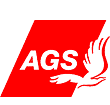Moving to South Africa with your Pet

The good news is, moving to South Africa with your pet is a straightforward process and most people who bring their dogs or cats with them when they relocate do not experience any problems. The bad news is, as you might have expected, that relocating a pet is expensive. But knowing the process and filing some of your own paperwork can help keep costs down.
Choosing to Take Your Pet to South Africa
Before you decide to bring your pet to South Africa with you, it might also be a good idea to be aware of your further plans after that, as exporting a pet from South Africa is a whole new story. It can be as easy as microchipping and having all the vaccines up-to-date (USA and Canada) and as complicated as extensive blood work and 7 months of quarantine (Australia). Most other countries fall somewhere in between.
Some people choose to leave their pets behind, especially if their assignment is short-term and if they want to spare the expense and the hassle for the animals. Or, if they are coming from a rabies-free country, they might not want to expose their pets to it if there is a chance they might return within a few years. But most people who do decide to bring their pets to South Africa with them are very happy with their decision. If you have kids, settling them in a new country with a beloved pet in the house is definitely easier than having to say goodbye and dealing with entirely new surroundings.
Whichever route you choose, getting started with your paperwork and locating the applicable government veterinarian in your home country at your earliest convenience will go a long way towards making the process smooth, both for you and for your pet.
Using a Pet Relocation Service
Many expats choose to employ the services of a pet relocation service (such as www.petmovers.com, www.petrelocation.com, www.petmove.com, www.globalpaws.co.za, www.petport.co.za or check out pet transportation services on Expat-Quotes). These services will assist you through the entire process to varying degrees, like booking kennels, making travel arrangements, providing containers for transport, getting quarantine organized (if needed), clear your pet through customs, apply for necessary permits and pay for fees - essentially providing door-to-door transport.
If you are being relocated to South Africa by your employer, it is a good idea to check if pet relocation (and repatriation) expenses are included in your relocation package. Most employers do not cover pets, but it is worth investigating.
If you don’t mind the expense and cherish the peace of mind that everything is taken care of from beginning to end, hiring a pet relocation service might be the best avenue for you. However, if affordability makes or breaks the deal, meaning you might not be able to bring your pet with you at all if the cost is too high, then learning all the steps of the process will be essential.
Documents for Importing Pets to South Africa
Both dogs and cats need to be microchipped.
Import Permit
The first thing you will need when bringing your cat or dog to South Africa from overseas will be an Import Permit, accompanied by a payment of R120 into the Department of Agriculture’s bank account. Neighboring countries are exempted (but Mozambique has some special rules). You can obtain the proper form from http://www.nda.agric.za/vetweb/ under “import” and “application forms.”
Veterinary Health Certificate
The second thing you will need to get organized is a Veterinary Health Certificate signed and stamped by a government approved veterinarian in the exporting country. The tricky part about this certificate is that it needs to be issued within 10 days of the pet’s departure.
Vaccines for Importing Pets to South Africa
Dogs must be tested for 5 different diseases within 30 days of travel (or a certification by the exporting country’s health authorities stating that the disease is nonexistent in that country must be presented) and must test negative to all five to be eligible for import. This is part of the veterinary health certificate mentioned above.
Rabies Vaccine
Both dogs and cats need a rabies vaccination administered within the last 12 months (but, in case of a first-time vaccination, not less than 30 days prior to date of import; boosters may be administered without lead time). The only countries exempted from rabies vaccinations (though it is still recommended since there is rabies in South Africa) are the UK, Australia, New Zealand, and Northern Ireland.
Pet Quarantine in South Africa
Any animal imported into South Africa that is subject to quarantine must arrive via OR Tambo International Airport in Johannesburg or Cape Town International Airport. Pets that are quarantine exempt can also be imported via Durban International Airport. All pets can only disembark via the cargo terminal and must therefore be declared as manifest cargo, not excess baggage (eve if they travel in the cabin with the owner).
Dogs from some countries are subject to a 14 day quarantine (including most of Asia, Africa, and South America). Dogs from most of the surrounding countries as well as Europe and North America are quarantine exempt. (For a complete list, visit the above website under “import” and “import procedures.”) Dogs subject to quarantine will need a signed Indemnity Form in its original, either handed in or couriered to the quarantine station at OR Tambo International Airport. All dogs that are quarantined will be retested after the quarantine regardless of the prior blood test.
Cats generally don’t need to be quarantined, unless the originals of the above forms are missing.
The import permit and veterinary health certificate must be presented in their original to have the pet released at the cargo terminal. They can either travel with the animal or be presented by the person collecting the animal.
By Sine Thieme, an American repat just returned from a three-year assignment in Johannesburg with her husband an four children, where she loved the weather, the people, going on safari, and the fact that you never quite knew when exactly 'just now' would be.
- South Africa: Expat in JHB looking for other SA expats for PhD
- South Africa: EasyExpat.com is looking for networkers/helpers for...
- South Africa: EasyExpat.com recherche des animateurs pour notre...
- South Africa: Les nouveaux expats en Afrique du Sud se présentent
- South Africa: New Members in South Africa: Welcome!
- My Life Abroad -
A selection of expat stories

"A fun compulsive read!"
J. Matcham, Amazon
"I strongly advise people ready to live abroad to read this book!"
Patrice, Amazon

 An Expat in Cape Town
An Expat in Cape Town Hiring packing services reduces the stress of moving
Hiring packing services reduces the stress of moving Relocation Services - Which Option is Best?
Relocation Services - Which Option is Best?
 AGS Worldwide Movers
AGS Worldwide Movers 1stMove Car Shipping
1stMove Car Shipping